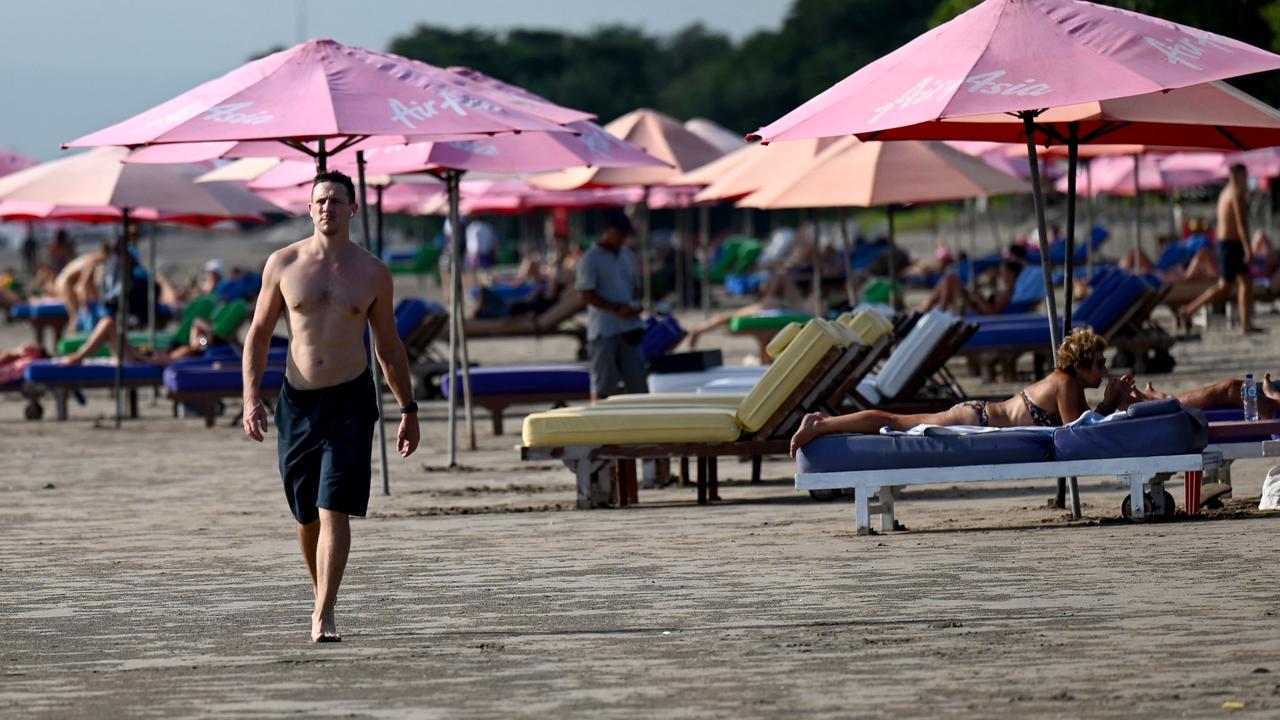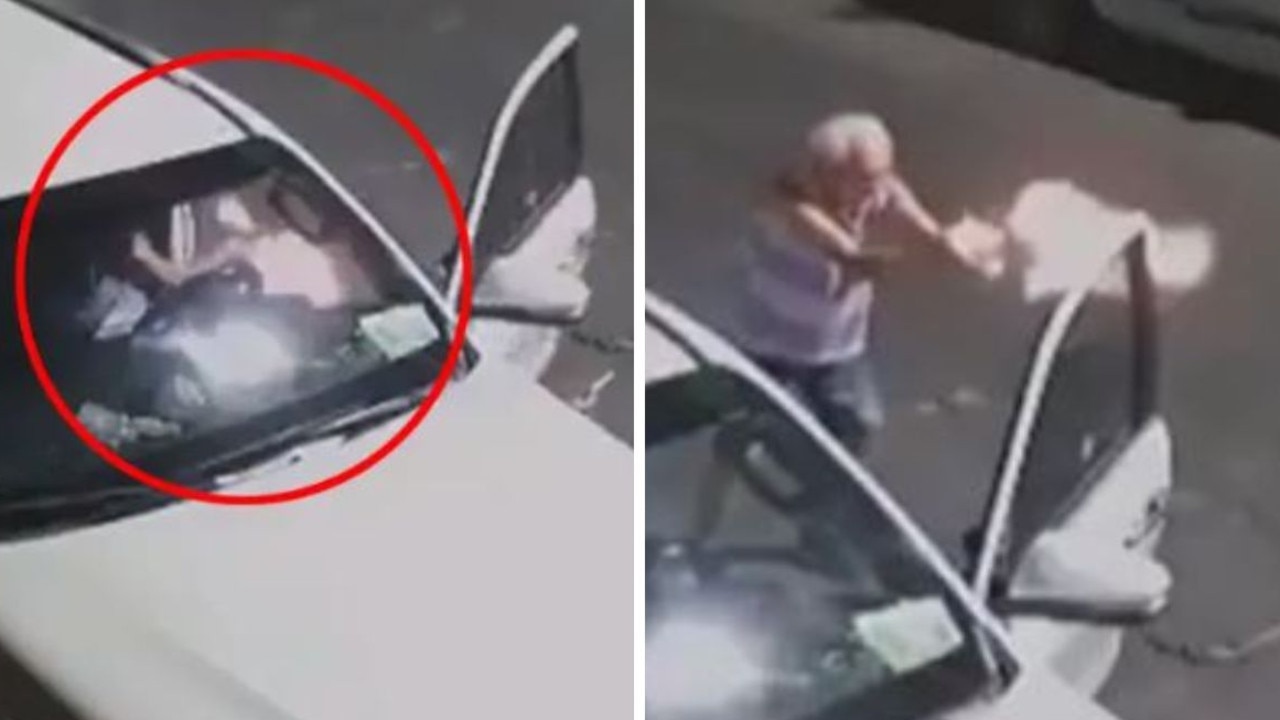India COVID crisis: death toll passes 4000, more than 400,000 cases for third consecutive day
COVID-ravaged India has reached a tragic death toll milestone, as the WHO warns the country’s COVID-19 variant is more contagious and could be dodging vaccine protections.

World
Don't miss out on the headlines from World. Followed categories will be added to My News.
COVID-ravaged India has reached a tragic milestone, with a record 4187 deaths in 24 hours and more than 400,000 new infections for the third consecutive day.
The news comes amid warnings from the World Health Organization that India’s COVID-19 variant was more contagious and could be dodging vaccine protections.
Figures from the Indian Government’s Ministry of Health and Family Welfare show there are 3,723,446 active COVID cases around the country.
The official death toll is 238,270.
The number of vaccinations has risen by 2,297,257, bringing India’s total vaccination number to 167,346,545. The country has an estimated population of 1.38 billion.
The World Health Organization (WHO) has reported India recorded 401,078 new cases, bringing confirmed cases to 21,892,676.
The WHO’s chief scientist has warned the COVID-19 variant spreading in India was more contagious and may be dodging vaccine protections, contributing to the country’s explosive outbreak.
Dr Soumya Swaminathan said “the epidemiological features that we see in India today do indicate that it’s an extremely rapidly spreading variant”.
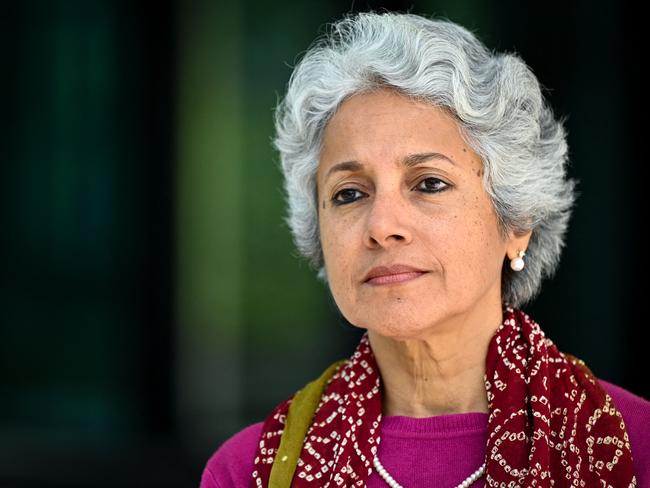
New Delhi has struggled to contain the outbreak, which has overwhelmed its healthcare system, and many experts suspect the official death and case numbers are a gross underestimate.
Swaminathan, an Indian paediatrician and clinical scientist, said the B. 1.617 variant of COVID-19, which was first detected in India last October, was clearly a contributing factor to the catastrophe unfolding in her homeland.
“B 1.617 is likely to be a variant of concern because it has some mutations which increase transmission, and which also potentially could make (it) resistant to antibodies that are generated by vaccination or by natural infection,” she said.
But she insisted that the variant alone could not be blamed for the dramatic surge in cases and deaths seen in India, lamenting that the country appeared to have let down its guard down, with “huge social mixing and large gatherings”.
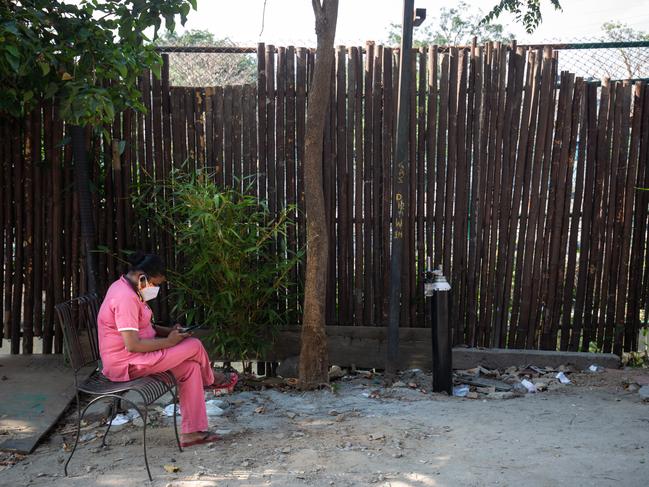
While India is now trying to scale up vaccination to rein in the outbreak, Dr Swaminathan warned that the jabs alone would not be enough to gain control of the situation.
She pointed out that India, the world’s largest vaccine-making nation, had only fully vaccinated around two per cent of the 1.3 billion-plus population.
“It’s going to take many months if not years to get to the point of 70 to 80 per cent coverage,” she said.
With that prospect, Dr Swaminathan stressed that “for the foreseeable future, we need to depend on our tried and tested public health and social measures” to bring down transmission.
“The more the virus is replicating and spreading and transmitting, the more chances are that … mutations will develop and adapt,” Swaminathan said.
“Variants which accumulate a lot of mutations may ultimately become resistant to the current vaccines that we have, That’s going to be a problem for the whole world.”
AUSSIE’S COVID DEATH IN INDIA ‘TRAGIC AND FORESEEABLE’
Shadow foreign minister Penny Wong has savaged Scott Morrison over his ‘lack of a plan’ to bring Australians trapped in India home and claimed the death of a permanent resident there was “tragic and foreseeable”.
On Saturday Ms Wong joined the growing chorus of criticism of Prime Minister Morrison for his approach to India’s COVID crisis.
“If he had a plan to get Australians home, we would not have nearly 10,000 Australians stranded in India,” Ms Wong said.
“We wouldn’t have had Australians stranded overseas and we would not have 173 kids unaccompanied minors, who are Australian citizens or permanent resident who are stuck in India.”
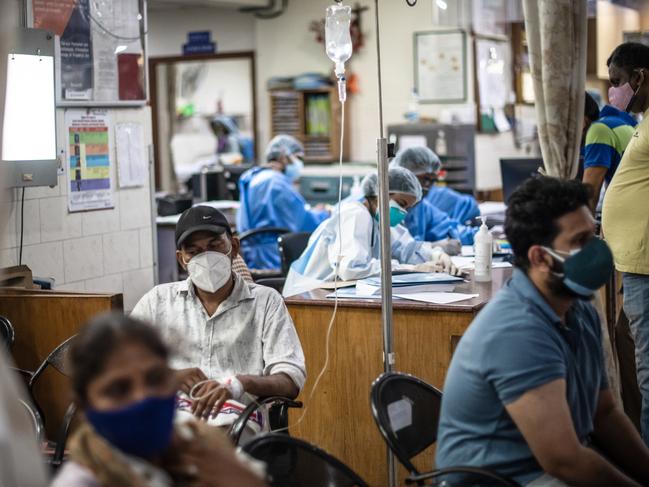
Sydney woman Sonali Ralhan says her father died in a small private New Delhi hospital after contracting COVID-19 as India is ravaged by ongoing surges of a strong coronavirus variant.
Ms Ralhan told SBS that her father, 59, died on Wednesday after contracting coronavirus, three days after the federal government enacted a controversial India travel ban and made it temporarily illegal for citizens and permanent residents stranded there to come back to Australia.
Ms Wong’s above comments came in a speech posted on social media on Saturday in which she described the death of the Aussie permanent resident as “tragic and foreseeable”.
Ms Ralhan said her father became a permanent resident of Australia more than 10 years ago, and often travelled back to India where he managed a hotel in New Delhi.
She said that due to his frequent business trips, he hadn’t accumulated enough residency time in Australia to qualify for citizenship, but was planning to apply.
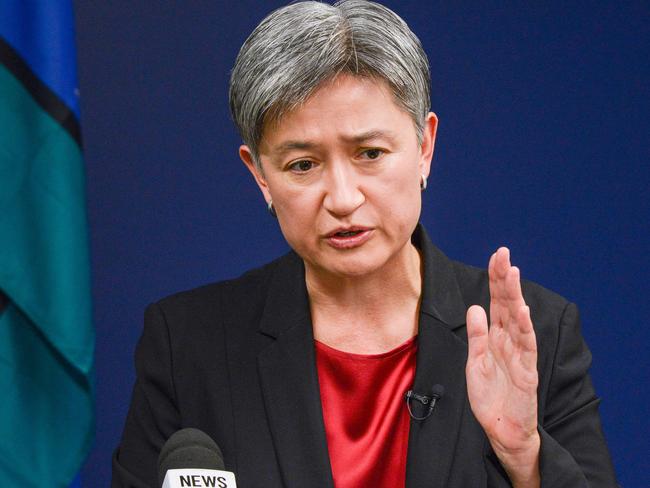
Ms Ralhan, her brother, and her mother are Australian citizens.
Ms Ralhan made a Facebook post on Thursday as an open letter addressed to Prime Minister Scott Morrison, saying she was “highly disappointed” to be an Australian citizen.
Ms Ralhan said her mother has recovered from COVID-19 but is still stranded in India due to the travel ban.
“We all want to cry our hearts out,” she wrote, “but we are saving them for when we are all together again.”
Ms Ralhan revealed that as her father was dying in hospital it was up to the family to find and refill oxygen tanks for him and pay for it.
On Friday, India logged yet another record number of infections with 414,000 new cases in the past 24 hours as well as 4000 deaths.
The new wave has spilled over into neighbouring countries including even remote parts of Nepal where two out of five people now test positive.
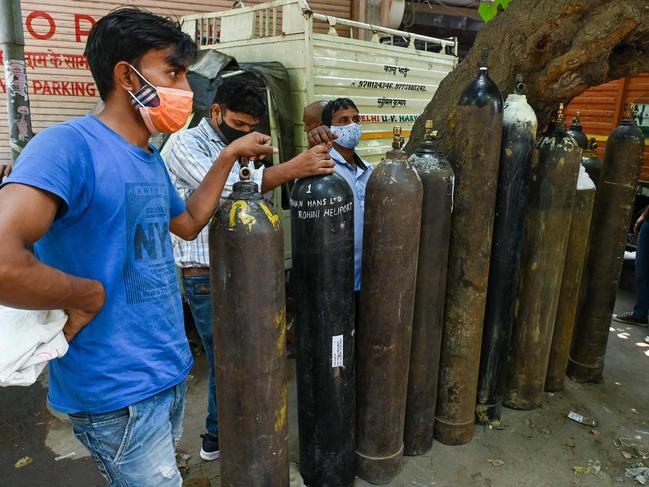
It comes as Australia’s High Commissioner to India Barry O’Farrell was asked at a senate committee hearing on Friday whether he was aware of any Australian citizens who had died of COVID-19 in India while waiting to come home.
“The department is aware and providing consular assistance, in accordance with its charter, to the family of an Australian permanent resident who reportedly has died in India,” he said.
“I’m advised, owing to our privacy obligations, we won’t be providing any further comment.”
He said one of the reasons he wouldn’t make any further comment was because it was not yet clear how the person died and whether it was from COVID-19.
However, Mr O’Farrell went on to explain that India has been reporting a nightly infection rate that was “greater than the population of Canberra” and he didn’t believe “anyone can put hand on heart” and say that Australian citizens or permanent residents are not among the deaths.
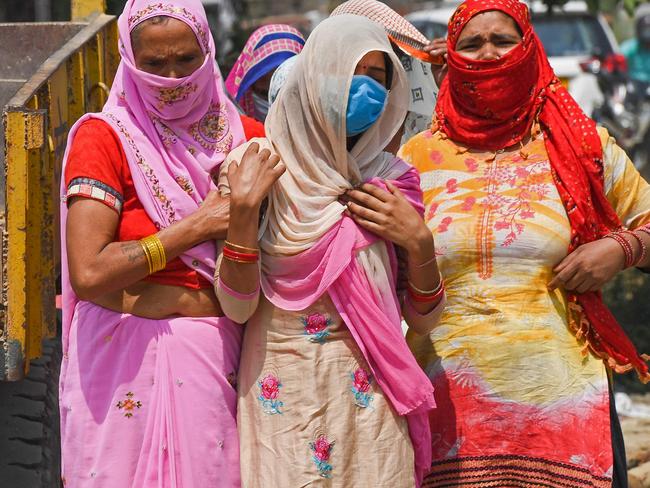
Foreign Minister Marise Payne described India as the “most significant hotspot” in the world but would not elaborate on the Australian’s death.
“I don’t think it’s helpful to speculate and particularly out of respect for the family,” she said on 2GB.
“I will receive further advice from our posts in India in relation to that, but most importantly let me extend my sympathy, and that of the government, to the family of this person.”
INDIA FLIGHT BAN LIFTED
Australians stranded in India will be given priority on government repatriation flights which will start arriving late next week, Prime Minister Scott Morrison has announced.
Mr Morrison said three flights will land in the Northern Territory starting May 15 and returning Australians will quarantine at the Howard Springs facility in Darwin which now has a capacity to take 2000 people — up from 850.
Each of the flights will carry 150 people with the vulnerable and families groups kept together. But anyone with the virus will not be allowed to board.
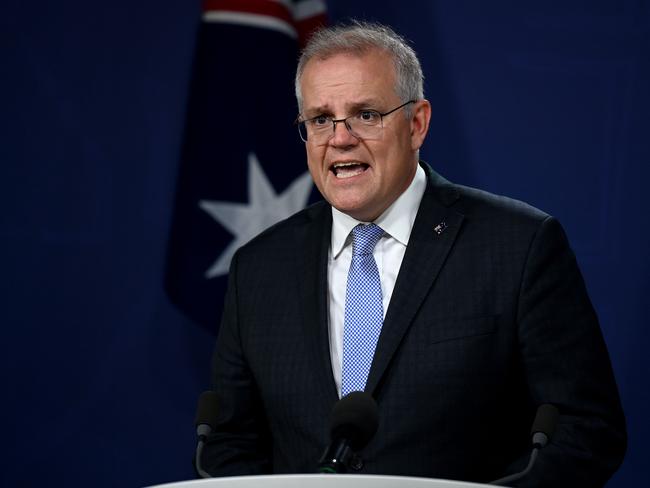
“We have rapid antigen testing in place to give ourselves a greater sense of surety that if we are bringing people back to Australia we are minimising the risk of COVID cases of being brought into the country,” Mr Morrison said.
“Those charter flights will, of course, be focused on bringing those Australian citizens, residents and families who have been registered with our high commission and consular offices within India. And it will also be targeted on those 900 most vulnerable of the group.”
The NT Acting Chief Health Officer, Charles Pain, said it had been important to ensure that the numbers of cases arriving did not potentially overwhelm health systems.
“We have now negotiated and agreed to a number of measures that will reduce the number of positives coming through and we are satisfied that we can manage that,” Mr Pain said.
Mr Morrison said NSW, Queensland, and Victoria indicated they’ll start taking direct flights from India when the flight ban lifts next week. South Australia is considering the move “very favourably”.
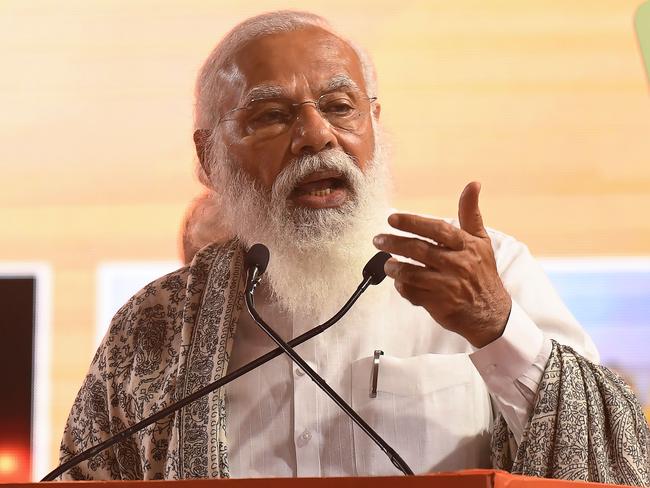
Last month the Federal Government banned Australians from returning from India as the country struggled with the world’s worst COVID-19 outbreak. Anyone breaching that ban was threatened with five years in jail or $66,000 fines.
Mr Morrison said the biosecurity order banning anyone returning from India had worked “exactly as it was intended to, and that will remain in place with no change until May 15 …”
“All of this is about sensibly preventing a third wave of COVID-19 here in Australia, and doing that responsibly, while at the same time doing everything we can to sustainably bring Australians home from what is currently (the) most significant hot spot for those travelling into Australia of anywhere in the world right now,” Mr Morrison said, after a National Cabinet meeting on Friday.
Mr Morrison said he would be speaking with the Indian Prime Minister Narendra Modi later in the day.
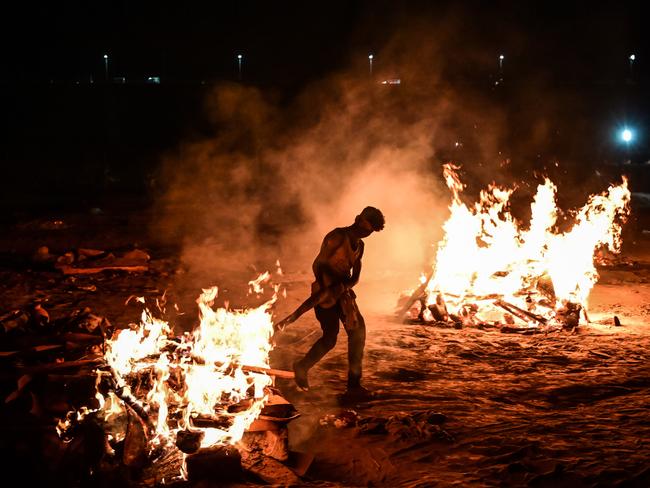
The flights from India will be crewed by Australians and will be provided at no cost to the traveller.
He also revealed that 10 per cent of Australians over the age of 16 have now had their first vaccination for COVID-19.
India recorded 412,262 new COVID-19 cases on Thursday, the world’s biggest single-day increase since the pandemic began.
The Health Ministry India has reported a record 3980 daily deaths, as a second wave of infections spread from cities into rural areas.



